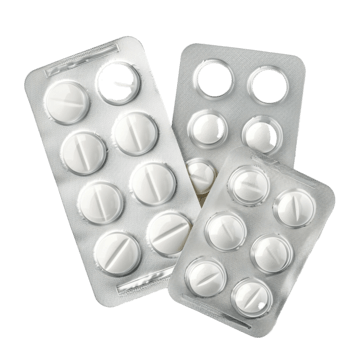Metoclopramide

Metoclopramide 10mg, 15mg, 30mg
Metoclopramide is a medication primarily used to treat nausea and vomiting, especially in patients undergoing chemotherapy, surgery, or radiation therapy. It works by increasing the movements or contractions of the stomach and intestines, allowing for quicker emptying of the stomach. Additionally, metoclopramide aids in the treatment of gastroparesis, a condition that affects stomach emptying. While it is effective in alleviating digestive issues, it is important to use it under medical supervision due to potential side effects and risks.
Order NowDescription
Metoclopramide is a medication that acts as an antiemetic and gastroprokinetic agent. It is primarily used to treat nausea and vomiting caused by various conditions, including surgery, chemotherapy, or migraine. Metoclopramide works by enhancing the movement of food through the stomach and intestines, which helps alleviate symptoms of nausea and promotes gastric emptying.
Uses / Indications
- Nausea and vomiting associated with chemotherapy
- Postoperative nausea and vomiting
- Gastroparesis (delayed gastric emptying) in diabetic patients
- Treatment of gastroesophageal reflux disease (GERD)
- Facilitation of small bowel intubation
Dosage and Administration
Adults:
10 mg to 20 mg, taken 30 minutes before meals and at bedtime, as needed.
Children (aged 0–18 years):
Dosage is based on body weight; typically, 0.1 mg/kg per dose, up to a maximum of 10 mg per dose.
Note: Dosage may vary based on individual medical condition or doctor’s advice.
How It Works (Mechanism of Action)
Metoclopramide primarily acts as a dopamine receptor antagonist, blocking the action of dopamine in the brain, which helps to reduce nausea and vomiting. It also stimulates gastrointestinal motility by increasing the contraction of the stomach muscles, which promotes faster gastric emptying.
Side Effects
Common side effects:
- Drowsiness or fatigue
- Restlessness or agitation
- Diarrhea
- Dry mouth
Rare/serious side effects:
- Tardive dyskinesia (involuntary muscle movements)
- Severe allergic reactions (rash, swelling, dizziness)
- Altered mental status (confusion, hallucinations)
Seek medical attention if serious side effects occur.
Precautions / Warnings
- Inform your doctor if you have a history of gastrointestinal disorders, seizure disorders, or are pregnant/breastfeeding.
- Use caution when driving or operating heavy machinery, as metoclopramide may cause drowsiness.
- Prolonged use may increase the risk of movement disorders; consult your doctor if treatment exceeds 12 weeks.
Drug Interactions
Metoclopramide may interact with:
- Alcohol (may enhance sedative effect)
- Other central nervous system depressants
- Medications that affect serotonin levels
- Certain pain medications and antidepressants
Always inform your healthcare provider about any other medications or supplements you’re taking.
Storage Instructions
- Store at room temperature (20°C–25°C / 68°F–77°F)
- Keep away from moisture, heat, and direct light
- Keep out of reach of children
Missed Dose / Overdose
Missed a dose?
Take it as soon as you remember. If it’s almost time for your next dose, skip the missed one. Do not double up.
Overdose symptoms:
- Severe drowsiness
- Muscle spasms or stiffness
- Rapid heart rate
- Confusion or agitation
Contact a poison control center or seek emergency medical help immediately.
Contraindications
- Allergic to metoclopramide or any of its components
- Pheochromocytoma (a type of tumor)
- Gastrointestinal obstruction or perforation
- History of tardive dyskinesia
Brand Names / Alternatives
- Reglan
- Metozolv ODT
- Generic name: Metoclopramide

